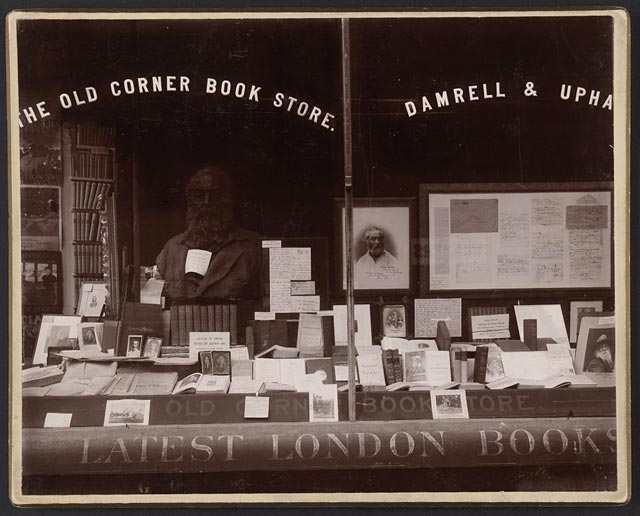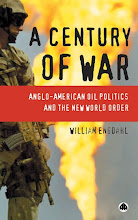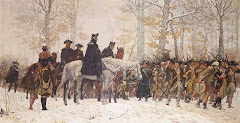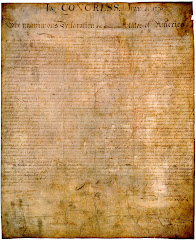Scottie McC doesn't know it yet. But that's basically what he revealed this morning on the Today Show (h/t Rayne).
During the interview, Scottie revealed the two things that really pissed him off with the Bush Administration. First, being set up to lie by Karl Rove and Scooter Libby. And second, learning that Bush had--himself--authorized the selective leaking of the NIE.
Scottie McC: But the other defining moment was in early April 2006, when I learned that the President had secretly declassified the National Intelligence Estimate on Iraq for the Vice President and Scooter Libby to anonymously disclose to reporters. And we had been out there talking about how seriously the President took the selective leaking of classified information. And here we were, learning that the President had authorized the very same thing we had criticized.
Viera: Did you talk to the President and say why are you doing this?
Scottie McC: Actually, I did. I talked about the conversation we had. I walked onto Air Force One, it was right after an event we had, it was down in the south, I believe it was North Carolina. And I walk onto Air Force One and a reporter had yelled a question to the President trying to ask him a question about this revelation that had come out during the legal proceedings. The revelation was that it was the President who had authorized, or, enable Scooter Libby to go out there and talk about this information. And I told the President that that's what the reporter was asking. He was saying that you, yourself, was the one that authorized the leaking of this information. And he said "yeah, I did." And I was kinda taken aback.
Now, for the most part, this is not new. We have known (since I first reported it here) that Scooter Libby testified that, after Libby told Dick Cheney he couldn't leak the information Cheney had ordered him to leak to Judy Miller because it was classified, Cheney told Libby he had gotten the President to authorize the declassification of that information.
Thus far, though, we only had Dick Cheney's word that he had actually asked Bush to declassify this information. We didn't have Bush's confirmation that he had actually declassified the information. In fact, we've had Dick Cheney's claims that he--Dick--had insta-declassified via his super secret pixie dust declassification powers.
But now we've got George Bush, confirming that he, the President of the United States, authorized the leaks of "this information."
Now, though Scottie refers, obliquely, to "this information," he explicitly refers only to the NIE. But as I've described over and over again, it's not just the NIE Bush authorized Dick to order Libby to leak.
As a review, here's what Libby's NIE lies are all about. This is all documented in this post, and here is the court transcript in which most of this is revealed.
- Scooter Libby has instructions in his notes to leak something to Judy Miller on July 8, 2003
- When questioned about the notation, Libby claimed the instructions related to the NIE
- Libby went further to make certain claims about the NIE leak--that the leak was authorized by Dick Cheney and George Bush, that such an authorization was totally unique in his career, and that Libby was so worried about leaking the NIE to Judy that he double checked to make sure he was authorized to do so
- Libby later made claims that directly contradicted these assertions--most importantly, even though Libby claims the Judy leak was totally unique in his career, he also leaked the NIE to three other people: Bob Woodward, a journalist [David Sanger] on July 2, and the WSJ
- Also, in spite of the fact that Libby says he was really worried about getting authorization to leak the NIE to Judy, he's not really sure whether he was authorized to leak the NIE to Woodward; his concern about the leak to Judy only extended to whatever he leaked to Judy
In short, Libby is almost certainly lying about what he was authorized to leak to Judy on July 8, 2003, in a meeting where Judy Miller admits he talked about Valerie Plame, and where Libby tried to get her to falsely attribute the story.
At this point, Scottie McC is still accepting Scooter Libby's lies, though I suspect he sees the dangerous frailty of them. With Bush's clear admission to Scottie that he was in the loop, and the evidence that, subsequent to receiving an order from Cheney (authorized by Bush) to leak classified information to Judy Miller, Libby leaked Valerie Wilson's identity, the circumstantial evidence shows the President was directly involved in the deliberate outing of a CIA spy. The only question now is whether Bush realized he authorized the leak of Valerie's identity, in addition to a bunch of other classified documents.
Think of how much sense this makes. We have evidence that George Bush ordered Libby to respond to Joe Wilson on June 9, 2003. We now have Bush's own confirmation that he authorized the leak Libby made to Judy Miller on July 8, 2003--which included the leak of Valerie Wilson's identity. We know on July 10, Condi told Stephen Hadley that Bush "was comfortable" with the response the White House was making towards Wilson. And we know that--when Cheney forced Scottie McC to exonerate Libby publicly that fall, he did so by reminding people that "The Pres[ident] [asked Libby] to stick his head in the meat-grinder." We know that Libby's lawyers tried desperately to prevent a full discussion of the NIE lies to be presented at trial. And we know that--after those NIE lies did not come out, for the most part (though one juror told me that NIE story was obviously false, even with the limited information they received)--the President commuted Libby's sentence on July 2, 2007.














